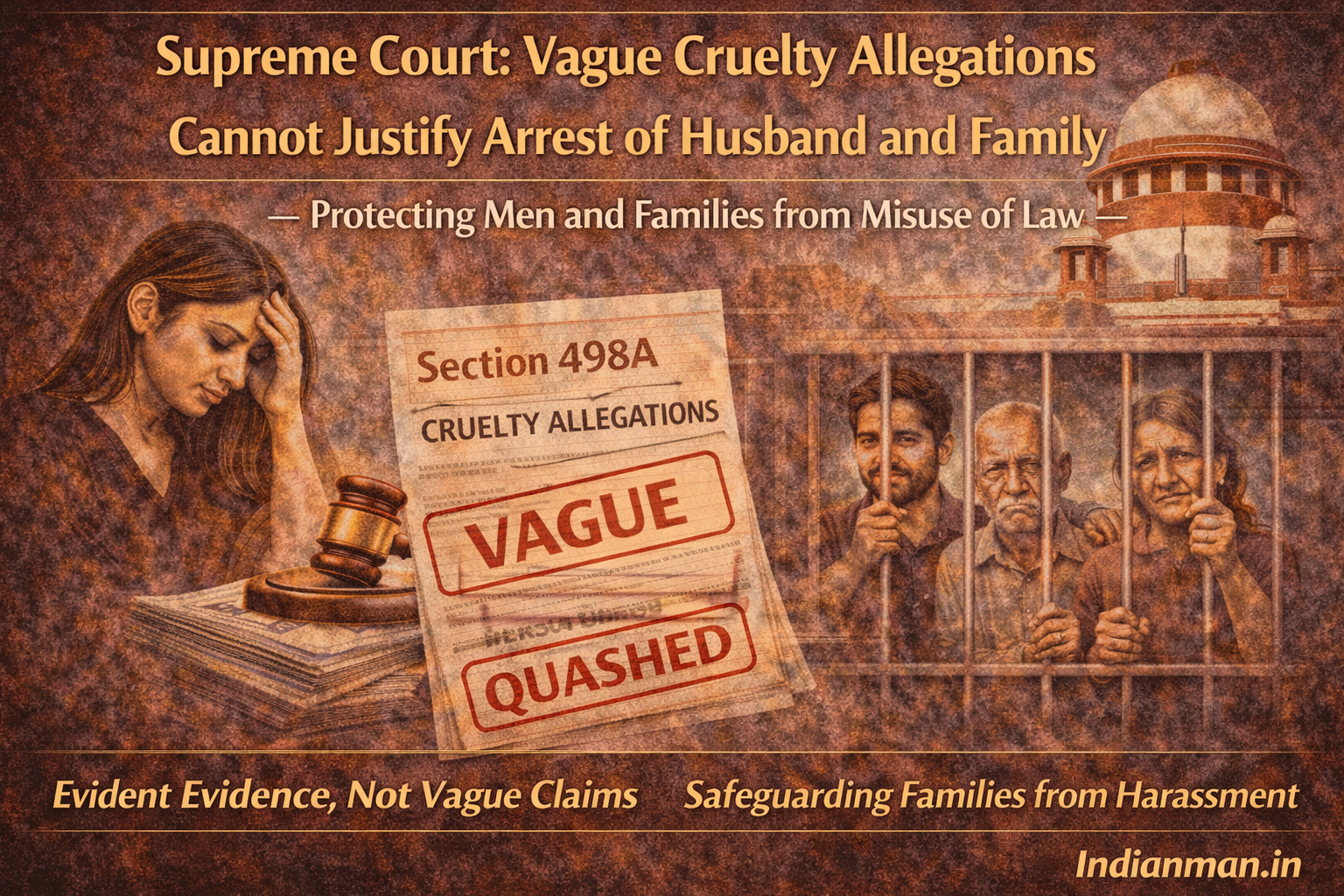Supreme Court Acquits Husband in Wife’s Suicide Case After 30 Years
In a significant ruling, the Supreme Court has acquitted a man convicted of abetting his wife’s suicide, bringing an end to a legal battle that lasted three decades.
Case Background
The case dates back to 1992 when the man got married. According to the prosecution, soon after marriage, he and his parents allegedly started demanding money to start a ration shop. Tragically, on November 19, 1993, his wife consumed poison and died.
The prosecution claimed that the woman took her own life due to continuous harassment from her husband. In 1998, a Karnal court found him guilty under Section 306 of the Indian Penal Code (IPC), a verdict later upheld by the Punjab and Haryana High Court.
Supreme Court’s Ruling
A Supreme Court bench, led by Justices J B Pardiwala and Manoj Misra, emphasized that for a conviction under Section 306 (abetment of suicide), the prosecution must prove clear “mens rea” (criminal intent). The court ruled that mere harassment is not enough for a conviction; there must be direct or active involvement in leading the person to suicide.
The judges cautioned that courts must be careful in handling cases involving the suicide of a woman within seven years of marriage. They warned against making legal decisions based on moral judgment rather than solid evidence.
The Supreme Court stated that demanding money from a wife or her family, without additional proof of cruelty or harassment, does not automatically constitute abetment of suicide. The bench added that suicide alone does not prove cruelty unless strong evidence supports the claim.
A 30-Year Ordeal Ends
Reflecting on the prolonged legal battle, the Supreme Court acknowledged that the criminal justice system itself can sometimes act as a punishment. The bench noted that it took the court just 10 minutes to conclude that the man’s conviction was unsustainable.
The case, which started in 1993, finally ended in 2024—after 30 years of suffering for the accused. The court also expressed sympathy for the young woman who lost her life, leaving behind a six-month-old child. However, it reiterated that guilt must be determined strictly by the law.
This ruling highlights the importance of careful legal assessment in cases of abetment of suicide, ensuring that justice is served fairly and accurately.
Be a part our social media community:
Facebook: https://www.facebook.com/IndianMan.in?mibextid=ZbWKwL
Instagram:
https://www.instagram.com/indianman.in?igsh=MWZ2N3N0ZmpwM3l3cw==



